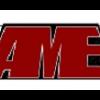BUY A TOW TRUCK OR SUBLET TOWING?
-
Available Subscriptions
-
Have you checked out Joe's Latest Blog?
-
By Joe Marconi in Joe's Blog0 commentsIt always amazes me when I hear about a technician who quits one repair shop to go work at another shop for less money. I know you have heard of this too, and you’ve probably asked yourself, “Can this be true? And Why?” The answer rests within the culture of the company. More specifically, the boss, manager, or a toxic work environment literally pushed the technician out the door.
While money and benefits tend to attract people to a company, it won’t keep them there. When a technician begins to look over the fence for greener grass, that is usually a sign that something is wrong within the workplace. It also means that his or her heart is probably already gone. If the issue is not resolved, no amount of money will keep that technician for the long term. The heart is always the first to leave. The last thing that leaves is the technician’s toolbox.
Shop owners: Focus more on employee retention than acquisition. This is not to say that you should not be constantly recruiting. You should. What it does means is that once you hire someone, your job isn’t over, that’s when it begins. Get to know your technicians. Build strong relationships. Have frequent one-on-ones. Engage in meaningful conversation. Find what truly motivates your technicians. You may be surprised that while money is a motivator, it’s usually not the prime motivator.
One last thing; the cost of technician turnover can be financially devastating. It also affects shop morale. Do all you can to create a workplace where technicians feel they are respected, recognized, and know that their work contributes to the overall success of the company. This will lead to improved morale and team spirit. Remember, when you see a technician’s toolbox rolling out of the bay on its way to another shop, the heart was most likely gone long before that.
-
-
Similar Topics
-
By carmcapriotto
Thanks to our Partners, NAPA Auto Care, NAPA TRACS and Automotive Management Network Mauro Stara from 6packceo.com shares powerful strategies for staying strong, sharp, and energized as a business owner. He breaks down common myths about health and highlights the importance of a personalized approach to well-being. Key areas of focus include the essential roles of sleep, nutrition, and stress management in promoting longevity and a high-quality life.
Mauro offers practical tips for optimizing sleep by aligning with your circadian rhythm, managing light exposure, timing meals strategically, and maintaining proper electrolyte balance. He encourages listeners to treat their health like they would their car, prioritizing regular care and attention to ensure a longer, more energized life.
Show Notes Watch Full Video Episode The Institute of Automotive Business Excellence: https://www.wearetheinstitute.com/ Overview of Dr. Jessica Kriegel (00:00:00) Three-Step Change Equation (00:02:47) Accountability in Business (00:03:31) Results Pyramid Explanation (00:04:11) Beliefs and Experiences (00:05:09) Defining Workplace Culture (00:06:50) Hospital Story for Illustration (00:12:02) Transformative Change Through Storytelling (00:14:09) Culture of Caring (00:15:09) Storytelling in Meetings (00:15:58) Generational Dynamics (00:17:51) Technology Adoption Across Generations (00:20:37) Connecting with Dr. Kriegel (00:22:23)
Thanks to our Partners, NAPA Auto Care, NAPA TRACS and Automotive Management Network Learn more about NAPA Auto Care and the benefits of being part of the NAPA family by visiting https://www.napaonline.com/en/auto-care NAPA TRACS will move your shop into the SMS fast lane with onsite training and six days a week of support and local representation. Find NAPA TRACS on the Web at http://napatracs.com/ Get ready to grow your business with the Automotive Management Network: Find on the Web at http://AftermarketManagementNetwork.com for information that can help you move your business ahead and for the free and informative http://LaborRateTracker.com Connect with the Podcast: -Follow on Facebook: https://www.facebook.com/RemarkableResultsRadioPodcast/ -Join Our Virtual Toastmasters Club: https://remarkableresults.biz/toastmasters -Join Our Private Facebook Community: https://www.facebook.com/groups/1734687266778976 -Subscribe on YouTube: https://www.youtube.com/carmcapriotto -Follow on LinkedIn: https://www.linkedin.com/in/carmcapriotto/ -Follow on Instagram: https://www.instagram.com/remarkableresultsradiopodcast/ -Follow on Twitter: https://twitter.com/RResultsBiz -Visit the Website: https://remarkableresults.biz/ -Join our Insider List: https://remarkableresults.biz/insider -All books mentioned on our podcasts: https://remarkableresults.biz/books -Our Classroom page for personal or team learning: https://remarkableresults.biz/classroom -Buy Me a Coffee: https://www.buymeacoffee.com/carm -Special episode collections: https://remarkableresults.biz/collections The Aftermarket Radio Network: https://aftermarketradionetwork.com/ Remarkable Results Radio Podcast with Carm Capriotto: Advancing the Aftermarket by Facilitating Wisdom Through Story Telling and Open Discussion. https://remarkableresults.biz/ Diagnosing the Aftermarket A to Z with Matt Fanslow: From Diagnostics to Metallica and Mental Health, Matt Fanslow is Lifting the Hood on Life. https://mattfanslow.captivate.fm/ Business by the Numbers with Hunt Demarest: Understand the Numbers of Your Business with CPA Hunt Demarest. https://huntdemarest.captivate.fm/ The Auto Repair Marketing Podcast with Kim and Brian Walker: Marketing Experts Brian & Kim Walker Work with Shop Owners to Take it to the Next Level. https://autorepairmarketing.captivate.fm/ The Weekly Blitz with Chris Cotton: Weekly Inspiration with Business Coach Chris Cotton from AutoFix - Auto Shop Coaching. https://chriscotton.captivate.fm/ Speak Up! Effective Communication with Craig O'Neill: Develop Interpersonal and Professional Communication Skills when Speaking to Audiences of Any Size. https://craigoneill.captivate.fm/ Click to go to the Podcast on Remarkable Results Radio
-
By carmcapriotto
Thanks to our Partners, NAPA Auto Care, NAPA TRACS and Automotive Management Network Recorded at the 2025 Institute Summit, workplace culture expert Dr. Jessica Kriegel discusses her data-driven framework for boosting business performance through clarity, alignment, and accountability, anchored by her "Results Pyramid," which highlights how beliefs and experiences shape outcomes.
The discussion unpacks what truly defines organizational culture, the power of storytelling to inspire change, and challenges common generational stereotypes in the workplace, advocating instead for a focus on individual motivations and behaviors. Dr. Jessica Kriegel, Chief Strategy Officer of Workforce and Labor for Culture Partners Dr. Jessica Kriegel is driven by data and defined by results. She transforms corporate culture for success. As seen on CNBC, MSNBC, CNN, NBC, FOX Business, New York Times, Wall Street Journal, Forbes, and more, Jessica is a household name for all workplace, labor, leadership, women in the workplace, and job markets. Her renowned “Culture Equation” was acquired by Culture Partners in 2021, where she is currently Chief Strategy Officer of Workforce and Labor. https://www.jessicakriegel.com/ Show Notes Watch Full Video Episode The Institute of Automotive Business Excellence: https://www.wearetheinstitute.com/ Overview of Dr. Jessica Kriegel (00:00:00) Three-Step Change Equation (00:02:47) Accountability in Business (00:03:31) Results Pyramid Explanation (00:04:11) Beliefs and Experiences (00:05:09) Defining Workplace Culture (00:06:50) Hospital Story for Illustration (00:12:02) Transformative Change Through Storytelling (00:14:09) Culture of Caring (00:15:09) Storytelling in Meetings (00:15:58) Generational Dynamics (00:17:51) Technology Adoption Across Generations (00:20:37) Connecting with Dr. Kriegel (00:22:23)
Thanks to our Partners, NAPA Auto Care, NAPA TRACS and Automotive Management Network Learn more about NAPA Auto Care and the benefits of being part of the NAPA family by visiting https://www.napaonline.com/en/auto-care NAPA TRACS will move your shop into the SMS fast lane with onsite training and six days a week of support and local representation. Find NAPA TRACS on the Web at http://napatracs.com/ Get ready to grow your business with the Automotive Management Network: Find on the Web at http://AftermarketManagementNetwork.com for information that can help you move your business ahead and for the free and informative http://LaborRateTracker.com Connect with the Podcast: -Follow on Facebook: https://www.facebook.com/RemarkableResultsRadioPodcast/ -Join Our Virtual Toastmasters Club: https://remarkableresults.biz/toastmasters -Join Our Private Facebook Community: https://www.facebook.com/groups/1734687266778976 -Subscribe on YouTube: https://www.youtube.com/carmcapriotto -Follow on LinkedIn: https://www.linkedin.com/in/carmcapriotto/ -Follow on Instagram: https://www.instagram.com/remarkableresultsradiopodcast/ -Follow on Twitter: https://twitter.com/RResultsBiz -Visit the Website: https://remarkableresults.biz/ -Join our Insider List: https://remarkableresults.biz/insider -All books mentioned on our podcasts: https://remarkableresults.biz/books -Our Classroom page for personal or team learning: https://remarkableresults.biz/classroom -Buy Me a Coffee: https://www.buymeacoffee.com/carm -Special episode collections: https://remarkableresults.biz/collections The Aftermarket Radio Network: https://aftermarketradionetwork.com/ Remarkable Results Radio Podcast with Carm Capriotto: Advancing the Aftermarket by Facilitating Wisdom Through Story Telling and Open Discussion. https://remarkableresults.biz/ Diagnosing the Aftermarket A to Z with Matt Fanslow: From Diagnostics to Metallica and Mental Health, Matt Fanslow is Lifting the Hood on Life. https://mattfanslow.captivate.fm/ Business by the Numbers with Hunt Demarest: Understand the Numbers of Your Business with CPA Hunt Demarest. https://huntdemarest.captivate.fm/ The Auto Repair Marketing Podcast with Kim and Brian Walker: Marketing Experts Brian & Kim Walker Work with Shop Owners to Take it to the Next Level. https://autorepairmarketing.captivate.fm/ The Weekly Blitz with Chris Cotton: Weekly Inspiration with Business Coach Chris Cotton from AutoFix - Auto Shop Coaching. https://chriscotton.captivate.fm/ Speak Up! Effective Communication with Craig O'Neill: Develop Interpersonal and Professional Communication Skills when Speaking to Audiences of Any Size. https://craigoneill.captivate.fm/ Click to go to the Podcast on Remarkable Results Radio
-
By Changing The Industry
Episode 212 - The Role of Technology in Modernizing Auto Shops with Monique from Shop-Ware
-
By carmcapriotto
The Weekly Blitz is brought to you by our friends over at Shop Marketing Pros. If you want to take your shop to the next level, you need great marketing. Shop Marketing Pros does top-tier marketing for top-tier shops.
Click here to learn more about Top Tier Marketing by Shop Marketing Pros and schedule a demo: https://shopmarketingpros.com/chris/
Check out their podcast here: https://autorepairmarketing.captivate.fm/
If you would like to join their private facebook group go here: https://www.facebook.com/groups/autorepairmarketingmastermind
SHOW NOTES
Connect with Chris: chris autofixsos.com
Phone: 940.400.1008
www.autoshopcoaching.com
Facebook: https://www.facebook.com/
AutoFixAutoShopCo
Connect with Chris: chris autofixsos.com Phone: 940.400.1008 www.autoshopcoaching.com Facebook: https://www.facebook.com/ AutoFixAutoShopCoachingYoutube: https://bit.ly/3ClX0ae
www.autoshopcoaching.com
Facebook: https://www.facebook.com/ AutoFixAutoShopCoaching
Youtube: https://bit.ly/3ClX0ae
The Aftermarket Radio Network
Remarkable Results Radio Podcast with Carm Capriotto: Advancing the Aftermarket by Facilitating Wisdom Through Story Telling and Open Discussion
Diagnosing the Aftermarket A to Z with Matt Fanslow: From Diagnostics to Metallica and Mental Health, Matt Fanslow is Lifting the Hood on Life.
The Auto Repair Marketing Podcast with Kim and Brian Walker: Marketing Experts Brian & Kim Walker Work with Shop Owners to Take it to the Next Level.
The Weekly Blitz with Chris Cotton: Weekly Inspiration with Business Coach Chris Cotton from AutoFix - Auto Shop Coaching.
Business by the Numbers with Hunt Demarest: Understand the Numbers of Your Business with CPA Hunt Demarest.
Speak Up! Effective Communication with Craig O'Neill: Develop Interpersonal and Professional Communication Skills when Speaking to Audiences of Any Size.
To listen to more episodes, make sure and go over to iTunes and or Spotify.
Don't forget to rate and review us!
Connect with Chris:
AutoFix-Auto Shop Coaching
www.autoshopcoaching.com
www.aftermarketradionetwork.com
#autofixautoshopcoaching #autofixbeautofixing #autoshopprofits #autoshopprofit #autoshopprofitsfirst #autoshopleadership #autoshopmanagement #autorepairshopcoaching #autorepairshopconsulting #autorepairshoptraining #autorepairshop #autorepair #serviceadvisor #serviceadvisorefficiency #autorepairshopmarketing #theweeklyblitz #autofix #shopmarketingpros #autofixautoshopcoachingbook
Click to go to the Podcast on Remarkable Results Radio
-
-
By Changing The Industry
Episode 211 - Trust, Ownership, and Ethical Sales with Kim and Brian Walker of Shop Marketing Pros
-
-
-
Similar Tagged Content
-
- 5 replies
- 3,082 views
-
- 9 replies
- 3,554 views
-
-
Our Sponsors















Recommended Posts
Create an account or sign in to comment
You need to be a member in order to leave a comment
Create an account
Sign up for a new account in our community. It's easy!
Register a new accountSign in
Already have an account? Sign in here.
Sign In Now